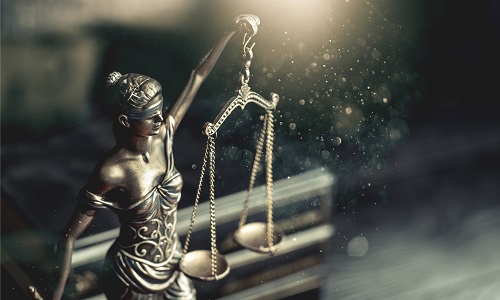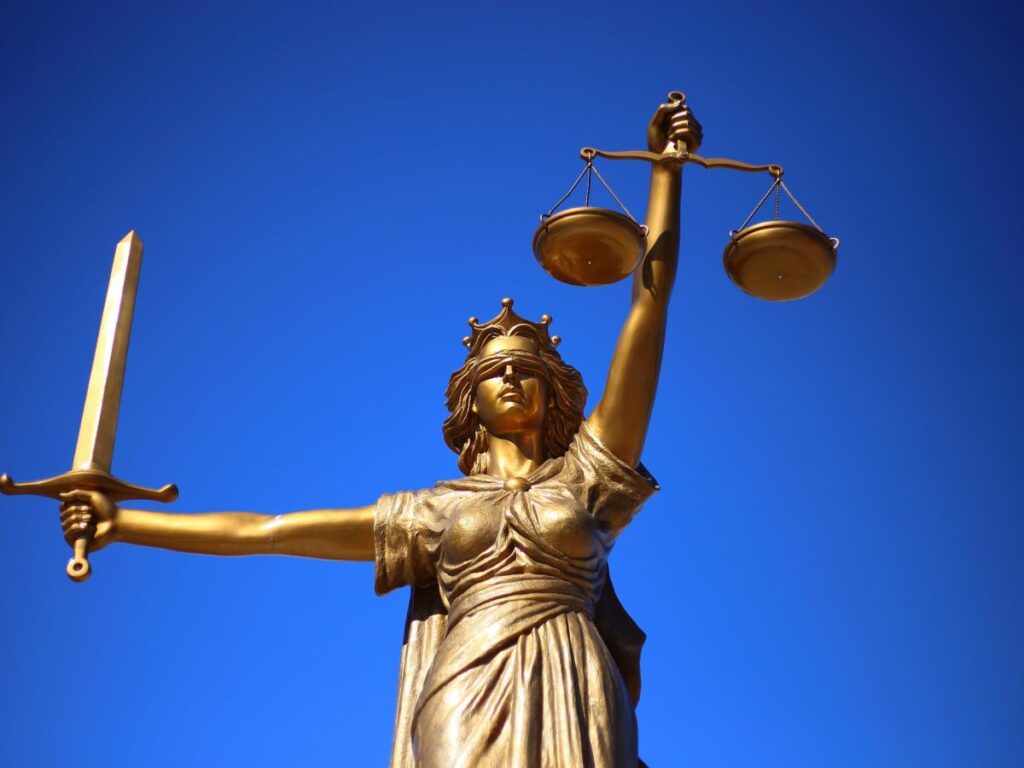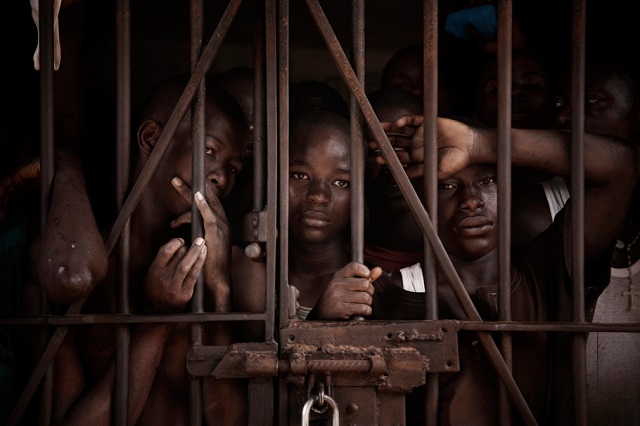Greetings! In our society, being categorized within vulnerable groups is perceived as stigmatizing, not solely due to any perceived weakness among group members, but also because of the encroachment upon their human rights. Several marginalized communities in Nigeria face significant hurdles in exercising their fundamental right to access justice, encountering barriers of financial, social, and cultural nature. Hence, this week’s newsletter thoroughly explores the challenges faced by vulnerable groups in Nigeria when seeking justice.
It is important to address the sense of marginalization experienced by minority groups within the country, given the stark disparity between official declarations of respect for human rights and their tangible enforcement. Despite this, many substantive and procedural barriers persist, hindering not only the effective implementation of such measures but also obstructing broader access to justice for the populace in Nigeria.
Access to justice encompasses access to the political framework and the advantages derived from the state’s social and economic progress. It involves access to law courts, as well as social and distributive justice, within a society. This concept pertains to the substantive and procedural concept within a given society aimed at enabling citizens to seek remedies for the infringement of their legal rights within the legal system. Moreover, it emphasizes the established rules and procedures for citizens to engage the courts in resolving their civil rights and obligations.
Access to justice is inherently fundamental, as the enjoyment and realization of all other rights, be they civil, political, or economic, are contingent upon it. Consequently, the degree to which distributive justice can be achieved within any system is heavily influenced by the level and efficacy of social justice within the country.
“Access to justice is a big deal. It’s not just about sorting out disputes, but also about the quality of the courts, the fairness of the process, the speed of getting justice, and even the integrity of those involved. It’s about making sure everyone has a fair shot at justice, without barriers like cost or corruption getting in the way.” Says Hamad Pelumi
In Nigeria, a significant segment of the populace resides below the poverty threshold, rendering access to justice a privilege inaccessible to many. Marginalized demographics, including women, children, individuals with disabilities, and rural communities, face even greater constraints in accessing justice due to their disadvantaged positions.
The lack of access to legal services can result in dire ramifications for marginalized communities, perpetuating a cycle of poverty, discrimination, and violations of human rights. For instance, individuals subjected to domestic violence may lack the means to pursue legal recourse against their perpetrators, leaving them susceptible to continued abuse. Likewise, individuals with disabilities may encounter discrimination in employment or education settings and may be unable to access legal avenues for redress.

Olabode Celestine believes that the expenses associated with litigation in the country are prohibitively high, rendering it difficult for the average Nigerian to secure sufficient legal representation. He states,
“In Nigeria, the harsh reality is that the average person struggles to afford legal representation due to exorbitant litigation costs. This creates a significant barrier to accessing justice, especially considering that many Nigerians are solely focused on making ends meet for themselves and their families. Even filing fees alone can be very high, making it nearly impossible for most people to even step foot in a courtroom.”
He added, “Proceeding with the complex legal procedures and rules is difficult for even the most educated individuals, let alone those who are illiterate, who make up a substantial portion of the population.”
Another formidable barrier to achieving access to justice in Nigeria is the widespread illiteracy prevailing in the country. It is regrettable that despite the emphasis on education within various development initiatives by successive governments, the socio-economic aspect of the nation has made it unattainable for the majority of Nigerians to access education.
The invaluable role of education in empowering individuals cannot be overstated. A well-educated individual possesses the adaptability to explore various situations and the intellectual prowess to assert their rights, unlike their uneducated counterparts. Education equips individuals with the ability to fully utilize the opportunities and resources within their environment. It is imperative to emphasize that education serves as a liberating force, freeing individuals from ignorance, poverty, and disease. The absence of education carries significant mental, political, and economic ramifications, thereby severely hindering access to justice in Nigeria.
Furthermore, to improve access to justice in any society, it is essential to establish fundamental infrastructures and ensure an adequate number of qualified personnel are involved in the system. In regions where the courts are understaffed or staffed by individuals lacking moral integrity, the state is unlikely to ensure social justice to its citizens. Indeed, corrupt judicial officials can significantly hinder the attainment of justice, even in cases where infrastructures and legal frameworks are well-established and structured.
Put differently, the legal and institutional frameworks within a system may be structured in a way that prevents citizens from accessing the courts, thereby rendering them unable to seek the enforcement or protection of their basic rights. As a result, access to justice is vital for safeguarding human rights, as individuals can only advocate for and pursue the protection of their fundamental rights when they have access to the courts.

Olayiwola Stella, a practicing lawyer, asserts that matters pertaining to the protection of human rights often assume a secondary priority for the majority of Nigerians. She states,
“In a country like Nigeria, where illiteracy rates are alarmingly high and basic survival is a daily struggle for many, human rights issues understandably take a back seat. For the majority, human rights protection seems like a luxury they can’t afford, with concerns about basic needs overshadowing any notion of rights. The results of this is that initiatives aimed at promoting human rights are often viewed as elitist pursuits, detached from the daily realities of most citizens, even when the intention is to benefit the broader society.”
Today, it has almost become widely acknowledged that legal cases often endure for several years before reaching conclusion. Given such circumstances, citizens naturally hesitate to initiate actions for the enforcement of their basic rights. Undoubtedly, these delays not only diminish public trust in the judicial process but also undermine the very integrity of the courts. This is despite the constitutional guarantee of a speedy trial, ensuring that any individual charged with a criminal offense is entitled to a fair hearing within a reasonable timeframe by a court or tribunal. Nevertheless, what remains perplexing is how Nigerians have endured this phenomenon for decades without devising a lasting solution.
According by Yomi Adams, a legal practitioner and activist,
“Prolonged trials that stretch over several years cannot be considered as reasonable. While some delay may be unavoidable due to the need for adequate preparation by parties involved, excessive delays become detrimental to the fair administration of justice. Delays can be worsened by the actions of those operating within the system, such as court officials responsible for serving processes, lawyers who continually request adjournments, and judges who fail to prioritize promptness in their decisions. Such delays not only hinder the timely resolution of legal matters but also undermine the integrity of the judicial process.”
While the concept of justice itself remains somewhat intangible, it generally upholds notions of equity and fairness. Meaningful access to justice necessitates the presence of fairness and equity within a system to ensure the realization of basic fundamental rights.
To tackle these challenges, the Nigerian Bar Association should take proactive measures to enhance access to justice for marginalized communities. Collaborating with governmental bodies, civil society organizations, and international stakeholders, the Bar Association should prioritize the provision of legal aid and support to vulnerable groups. The provision of legal services, particularly in the form of legal aid for those unable to afford them, is of paramount importance.

Additionally, the Bar Association should advocate for increased government funding for legal aid services, the establishment of specialized courts to handle cases involving vulnerable groups, and the enactment of laws that safeguard the rights of marginalized communities.
It is crucial to emphasize that access to justice serves as a significant gauge for evaluating not just the rule of law within a society, but also the caliber of governance prevalent within it. This underscores the current emphasis on transparency, accountability, and good governance as essential components for fostering socio-economic development effectively.
Access to justice is an intrinsic right that must be available to every individual within society, irrespective of their financial means or social standing. It is necessary for relevant stakeholders to acknowledge the significance of legal aid and accessibility to justice for marginalized communities, and to take proactive measures to guarantee equal access for all. The government must strive towards creating a more just and equitable society for all Nigerians through advocacy programs and policy initiatives. Only by addressing these issues comprehensively can the pressing need for enhanced access to justice in Nigeria be met, and fundamental human rights accorded the rightful prominence they deserve within society.




